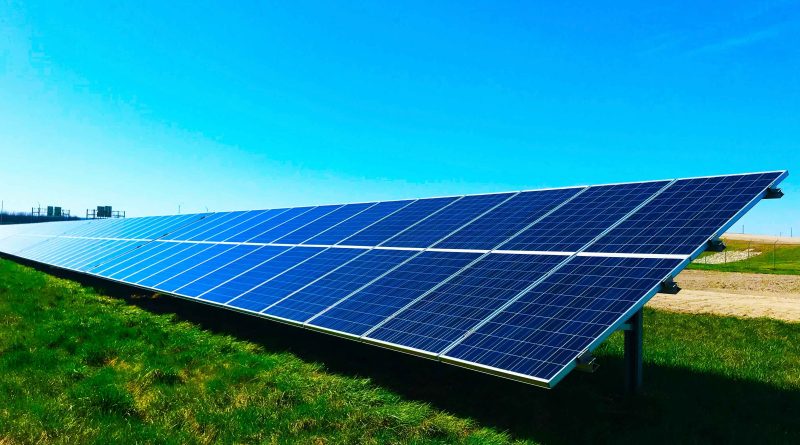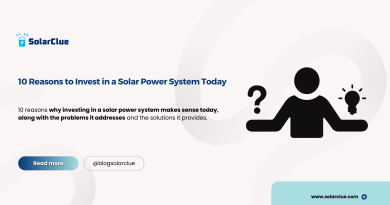A Must Have Accessory for Every Household: Solar Power System
Table of Contents
Introduction
In today’s world, the need for sustainable and renewable energy sources has become increasingly important. With the rising costs of traditional energy sources and the detrimental impact on the environment, it is crucial that we explore alternative sources of power. One such solution that has gained immense popularity and has become a must-have accessory for every household is the solar power system. Harnessing the power of the sun, solar power systems have numerous benefits for homeowners and the environment alike. In this article, we will delve into the importance of having a solar power system in every household and how it can revolutionize the way we generate and consume energy.
The Benefits of Solar Power Systems
Solar power systems offer a wide range of benefits that make them an ideal choice for households across the globe. Let us explore some of the significant advantages that a solar power system can bring:
1. Renewable and Clean Energy Source
Solar power is sourced directly from the sun, making it an abundant and renewable energy source. Unlike traditional energy sources such as coal or gas, solar power does not emit greenhouse gases or pollutants that contribute to air pollution and climate change. By adopting a solar power system, households can significantly reduce their carbon footprint and contribute to a cleaner and greener environment for future generations.
2. Cost Savings on Energy Bills
One of the primary advantages of solar power systems is the potential to save money on energy bills. Once installed, solar panels harness sunlight and convert it into electricity, significantly reducing or even eliminating reliance on the conventional power grid. This can result in substantial savings, as homeowners generate their electricity for free. Furthermore, excess solar energy can be sold back to the grid, creating an opportunity for households to earn money through net metering programs.
3. Energy Independence
By installing a solar power system, homeowners can achieve energy independence. Traditional energy sources are subject to price fluctuations and rely on external factors such as supply and demand. Solar power, on the other hand, provides a reliable and consistent source of energy. With a solar power system, households can have peace of mind knowing that they have control over their energy generation and are not at the mercy of external factors.
4. Durability and Low Maintenance
Solar panels are designed to withstand various weather conditions, including rain, snow, and extreme temperatures. They have a long lifespan, typically lasting for 25-30 years or more with proper care. Moreover, solar panels require minimal maintenance, reducing the overall cost and effort associated with their upkeep.
5. Increase in Property Value
Investing in a solar power system can increase the value of your property. Homebuyers are increasingly looking for homes with eco-friendly and energy-efficient features, and solar panels are considered a highly desirable addition. Studies have shown that homes equipped with solar power systems tend to sell faster and at a higher price than those without.
The Path to a Sustainable Future
With the numerous benefits that solar power systems offer, it is clear that they play a crucial role in achieving a sustainable future. By transitioning to solar energy, households can contribute to reducing greenhouse gas emissions, preserving natural resources, and mitigating the impacts of climate change. Additionally, solar power systems pave the way for a decentralized energy system, empowering individuals and communities to become active participants in the energy sector.
Conclusion
In conclusion, a solar power system is a must-have accessory for every household. Its ability to generate renewable and clean energy, save money on energy bills, provide energy independence, and increase property value make it an attractive and sustainable investment. By harnessing the power of the sun, households can pave the way for a greener future while enjoying the numerous benefits that solar power systems have to offer. It is time for every household to embrace this revolutionary technology and make a significant contribution towards a sustainable and eco-friendly world.
Solar power systems offer sustainable, cost-effective energy solutions, reducing reliance on traditional power sources.
By harnessing solar energy, you can significantly lower or eliminate electricity bills, providing long-term financial savings.
Solar systems work well in various locations; factors like sunlight exposure and roof orientation determine suitability.
Solar panels have a lifespan of 25-30 years, providing reliable and consistent energy during this period.
Yes, while performance may decrease in overcast conditions, solar panels can still generate power.
Minimal maintenance involves occasional cleaning and system checks to ensure optimal performance.
Yes, various governments offer incentives, such as tax credits and rebates, to promote solar energy adoption.
Yes, homes with solar systems often have increased market value, attracting environmentally conscious buyers.
System size depends on energy needs, roof space, and local sunlight conditions; a professional assessment is recommended.
Installation involves an assessment, design, obtaining permits, installing panels, and connecting the system to the electrical grid.




